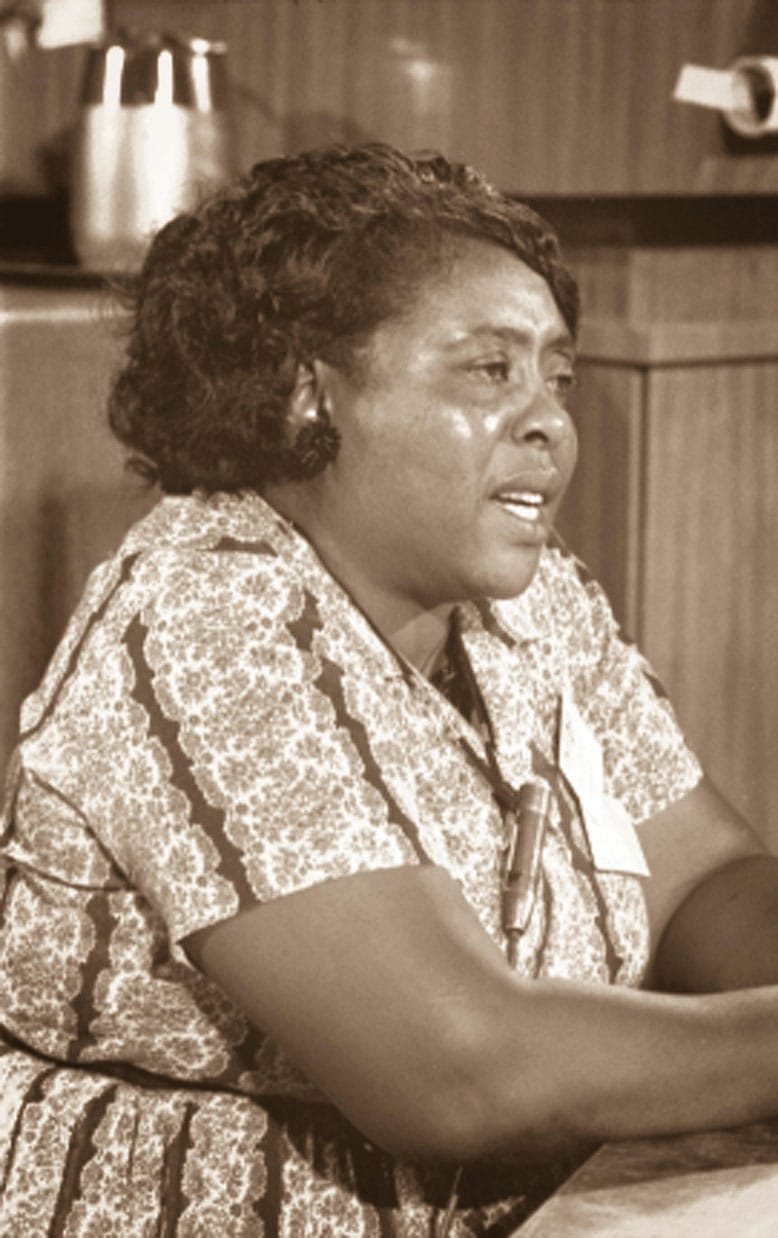
At the 1964 Democratic Convention in Atlantic City, Fannie Lou Hamer gave shocking televised testimony about racial violence. Photo: Alamy/Warren K. Leffler
In recent decades, political conventions have become little more than pep rallies.
But 60 years ago, at the 1964 Democratic National Convention in Atlantic City, a dramatic showdown between civil rights activists and party leaders paved the way for the passage of the landmark 1965 Voting Rights Act, which outlawed voter discrimination in the South.
Prior to the convention, civil rights leaders, distressed that Blacks were barred from participating in the Mississippi Democratic Party, had formed an alternative, the Mississippi Freedom Democratic Party. At Convention Hall (now Jim Whelan Boardwalk Hall), Fannie Lou Hamer, daughter of sharecroppers, gave shocking televised testimony about racial violence against Mississippi Blacks, and John Lewis, the activist and, later, congressman from Georgia, spoke at a rally on the Atlantic City Boardwalk.
As letters and calls flooded the White House, President Lyndon Johnson offered a compromise that would give two non-voting seats to the alternate party, and a promise that all future Democratic delegations would be desegregated.
Among those who mulled the proposal at Union Temple Church were civil rights heavyweights John Lewis, Martin Luther King Jr. and Bob Moses. Ultimately, they rejected the proposal, insisting that the entire delegation be allowed to vote.
Although many saw the showdown as a setback for civil rights, the activists’ efforts in Atlantic City compelled the Democratic party to adopt a civil rights plank reflecting a commitment to racial justice. One year later, the Voting Rights Act was passed.
[RELATED: Martin Luther King Jr.’s Civil Rights Career Began at a Modest NJ Café]
No one knows New Jersey like we do. Sign up for one of our free newsletters here. Want a print magazine mailed to you? Purchase an issue from our online store.



